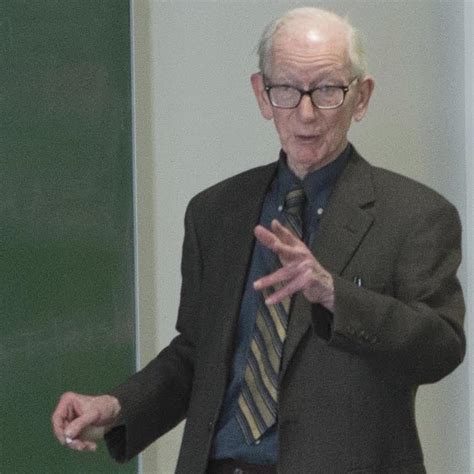A Quote by Andrew Hacker
Every time a message seems to grab us, and we think, 'I just might try it,' we are at the nexus of choice and persuasion that is advertising.
Quote Topics
Related Quotes
There are a lot of great technicians in advertising. And unfortunately they talk the best game. They know all the rules. They can tell you that people in an ad will get you greater readership. They can tell you that a sentence should be this short or that long. They can tell you that body copy should be broken up for easier reading. They can give you fact after fact after fact. They are the scientists of advertising. But there's one little rub. Advertising is fundamentally persuasion and persuasion happens to be not a science, but an art.
The fact is that much of advertising's power comes from this belief that advertising does not affect us. The most effective kind of propaganda is that which is not recognized as propaganda. Because we think advertising is silly and trivial, we are less on guard, less critical, than we might otherwise be. It's all in fun, it's ridiculous. While we're laughing, sometimes sneering, the commercial does its work.
We can sit here and talk about all the negativity, which we've done a little bit, but for every act of evil in the world, there are a million acts of kindness. Basically, our nature is to love each other and care about each other, and most of us do that. Most of us have no quarrel with anybody who's living on another side of the planet and who might have a different religious persuasion. It's just these small minorities to the far right and the far left who get all of the news time and print space.
When you think about normal advertising, it's just like, hey, here's a car and, you know, we don't know if you're looking for a car or not. So Google promised that mental state, and then were able to prove that delivering the message at the exact right moment would make someone click on something. So they pioneered the idea that advertising could be profitable on the internet, that a specific, very micromental state could be targeted. And they established the primacy of the click, which has haunted us ever since.
If what the philosophers say be true, that all men's actions proceed from one source; that as they assent from a persuasion that a thing is so, and dissent from a persuasion that it is not, and suspend their judgment from a persuasion that it is uncertain, so likewise they seek a thing from a persuasion that it is for their advantage.




































